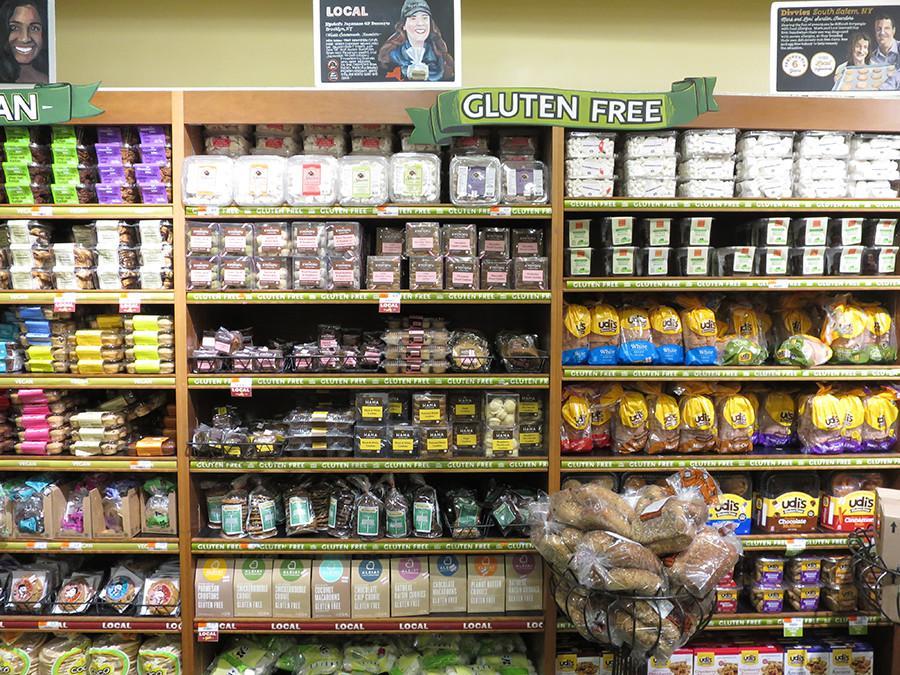Gluten-free diets not always healthy
Whole Foods offers a variety of gluten-free groceries and snacks.
March 10, 2015
Going gluten-free is a health trend that has garnered a lot of attention recently. Some people cut it out of their diets for medical reasons such as Celiac Disease, while others who are not allergic or intolerant to the wheat derivative are also jumping on the bandwagon.
LS professor Kevin Bonney believes that individuals should conduct more thorough research before fully committing to a completely gluten-free diet, as oftentimes some dive into the diet without even knowing what gluten really is.
“Gluten is a protein found in grains like wheat that helps give bread a chewy texture,” Bonney said.
For those with Celiac Disease, eating gluten triggers an immune response which causes intestinal pain. If left undiagnosed, or if the gluten-free diet is not kept, long term consumption of gluten can cause intestinal cancer. Those who do not have Celiac Disease, but are gluten sensitive can have a multitude of similar symptoms, but without the risk of suffering from intestinal damage.
Bonney said the disease is often misunderstood, with people often thinking they suffer from gluten sensitivities when in fact they do not.
“Some people on gluten-free diets may feel better due the placebo effect, but evidence suggests that a different type of molecule called FODMAPS — fermentable oligo- di- and monosaccharides, and polyols — is more likely to be responsible for their symptoms,” Bonney said. “Because FODMAPS are found in the same foods as gluten, people on gluten-free diets are also avoiding FODMAPS, which is what alleviates their symptoms,” Bonney said.
Gluten-free foods can be deceptively unhealthy, as they often contain many more caloric additives than they foods they replicate, which Bonney said brings about some negative aspects of going gluten-free.
“Gluten-free diets are not without risk,” Bonney said. “they may cause people to consume more calories and sugar, and less fiber, as well as spend more money on food unnecessarily, so each individual should carefully examine the benefits and risks before going gluten-free.”
Maintaining a gluten-free diet can be difficult, especially for college students that eat on low budgets. For students with time constraints and below-average cooking skills, pre-made options can be a lifesaver. Grocery stores like Whole Foods, Trader Joe’s and West Side Market have an array of gluten-free snacks available on-the-go.
Eating out can also be difficult, but with the growing trend, restaurants have recognized this market. Five Napkin Burger has gluten-free buns that can be added to any burger on the menu. The Grey Dog, an NYU student’s staple brunch place, offers gluten-free French toast. NewsBar offers a quick gluten-free sandwich for your afternoon commute to campus. Lili and Loo as well as The Little Beet Table offer completely gluten-free menus.
A version of this article appeared in the Tuesday, March 10th print edition. Email Emily at [email protected].
























































































































































